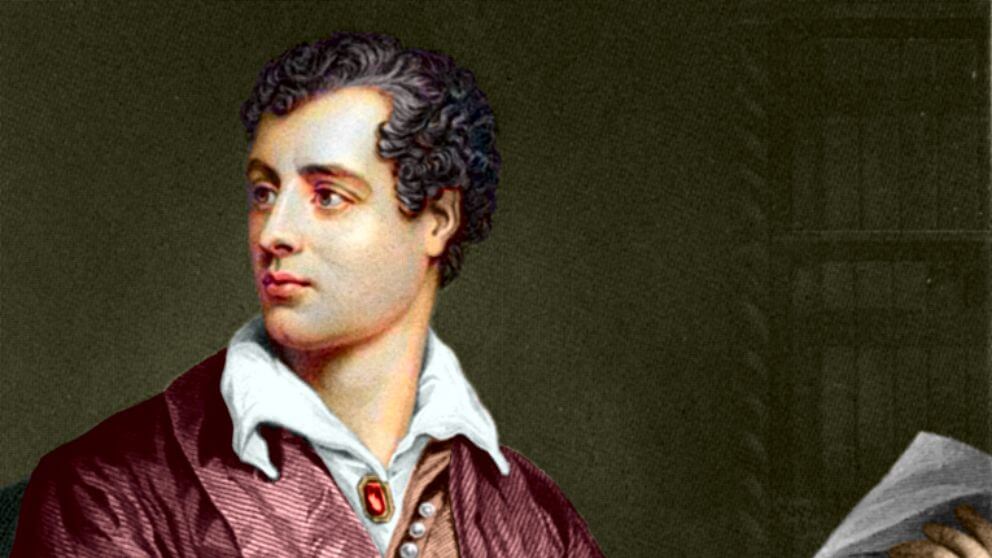
Post contributed by Lorna, Student Experience Ambassador
Lord Byron was an influential literary figure who helped influence the Romantic movement in
the late 18th and 19th centuries. The Romantic movement focused on the human condition,
emotion, imagination and individualism as a rebellion to the rationalism and order of the
Enlightenment period. George Gordon Byron, commonly known as Lord Byron, was a
prominent British poet who was born on January 22, 1788 and died on April 19, 1824, at the
age of 36.
Byron significantly contributed to English literature, with his poems evoking themes of deep
emotion and passion, such as love, longing, despair, and rebellion. He often drew on his own
firsthand experiences in relationships and his individual rebellion against societal norms,
conventions and tradition. For me, ‘Don Juan’ (1819-1824) the long narrative poem, springs to
mind when exploring these themes of love, morality and the absurdity of human nature; it also
acknowledges Byron’s sharp social commentary. Similarly to other romantics, he focused on
nature and the sublime, which were often used as a backdrop for his poetry. Byron
acknowledged the idyllicism and power of the natural world. He did this while focusing on ‘the
sublime’, a romantic idea that recognised both emotions of awe and terror in the face of these
vast and overwhelming natural forces. This is extremely similar to others like William
Wordsworth. ‘Extract from the Prelude’ (1798-1850) is brilliant for the portrayal of ‘the
sublime’!
One of Byron’s contributions to literature is the ‘Byronic hero’, which is typically a charismatic
figure haunted by inner turmoil and moral ambiguity. This hero, much like Byron himself, rebels
against societal norms while being tormented by a sense of guilt, all while being portrayed as an
outsider. One of the main examples of this figure in Byron’s work is ‘Manfred’ (1817).
Considering these immense contributions, it is probable that Byron’s anniversary might be
marked by special exhibitions of his manuscripts, discussions on his impact on Romanticism,
and readings of his poetry. Alongside this, it may also evoke a renewed interest in Byron’s
personal life, including his tumultuous relationships, his political activism, and his travels, which
often inspired his writings.
Overall, Lord Byron’s 200th anniversary of his death will serve as a moment to reflect on his
enduring impact on literature and culture, as well as to celebrate his life and contributions to
the world of poetry.
Bibliography:
Byron, L. (1819-1824) ‘Don Juan’. Available at: Don Juan – Lord Byron, Ligaran, – Google
Books
Byron, L. (1817) ‘Manfred’. Available at: Manfred – Lord Byron – Google Books
Wordsworth, W. (1798-1850) ‘Extract from the Prelude’, Narrative Exchange: Routledge
Revivals. Pp.216-219 Available at: Narrative Exchanges (Routledge Revivals) – Ian Reid –
Google Books
